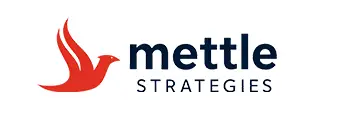The CEO’s Highest-Value Work
At the center of every successful organization is a leader who knows their strengths—and ruthlessly prioritizes them. For a founder or CEO, the highest-value work almost always lies in a narrow band: setting vision, shaping strategy, developing key relationships, or driving the area where they hold unique expertise (such as business development, product development, and talent development).
Everything else—no matter how important it seems—distracts from the work that truly creates enterprise value. To scale beyond the limits of one individual, leaders must embrace two disciplines: delegation and automation.
Delegation as a Strategic Imperative
Delegation is not simply a matter of convenience; it is a strategic necessity. Organizations stall when decision-making and execution remain concentrated in the founder’s hands.
Effective delegation requires structure. It is not a blind handoff, but the thoughtful transfer of responsibility within a framework of accountability. Dashboards, regular reviews, and clearly defined outcomes allow CEOs to maintain oversight without strangling the process.
Leaders who fail to delegate become their company’s ceiling. Leaders who delegate well enable scale.
Automation: The Silent Multiplier
While delegation extends human capacity, automation eliminates the need for human capacity altogether. Entire categories of work that once consumed hours can now be executed in seconds.
Modern automation is not limited to industrial processes; it spans every function of the business. Consider:
- Customer support: AI-driven systems can resolve or route inquiries with minimal human touch.
- Marketing: Campaigns can be triggered, optimized, and personalized at scale.
- Sales: Lead qualification and pipeline management can be largely automated.
- Finance and operations: Dashboards refresh in real time, expense tracking is automated, and reporting is systematized.
Automation creates compounding leverage. Every task that disappears into software frees human energy for higher-order work.
Overcoming the Founder’s Dilemma
The greatest barrier to delegation and automation is not capability—it is psychology. Founders often resist letting go of “critical” tasks, believing no one can execute them as well. In truth, this mindset is the single greatest inhibitor of growth.
Control can be maintained without direct execution. The role of the CEO is not to perform tasks, but to design systems where tasks are performed well—by others or by technology.
Designing an Organization for Leverage
At its core, scaling a business is about leverage: ensuring every hour invested yields exponential returns. Delegation provides leverage through people. Automation provides leverage through technology. Together, they create an organization that compounds time rather than consumes it.
This is not optional. Markets move too fast, and competitors adopt these practices aggressively. A CEO who refuses to delegate or automate condemns their business to stagnation.
An Enabler for Growth
At Mettle Strategies, we help entrepreneurs and CEOs design organizations built for leverage. Our process begins with a rigorous audit of leadership time, organizational workflows, and operational bottlenecks. From there, we build a roadmap:
- What must be delegated immediately, and how to structure accountability.
- What can be automated, and which technologies deliver the greatest return.
- Where the founder should reallocate time for maximum enterprise value.
The result is not simply efficiency—it is freedom. Freedom for the CEO to operate in their highest-value capacity. Freedom for the business to scale without constraint.
Blaze a Trail for Growth
At its core, scThe principle is simple, though rarely mastered: do what you love—what you are uniquely positioned to do—and delegate or automate everything else.
Those who embrace this discipline build organizations that outgrow them. Those who resist become the bottleneck. The choice, as always, rests with the leader. You.

